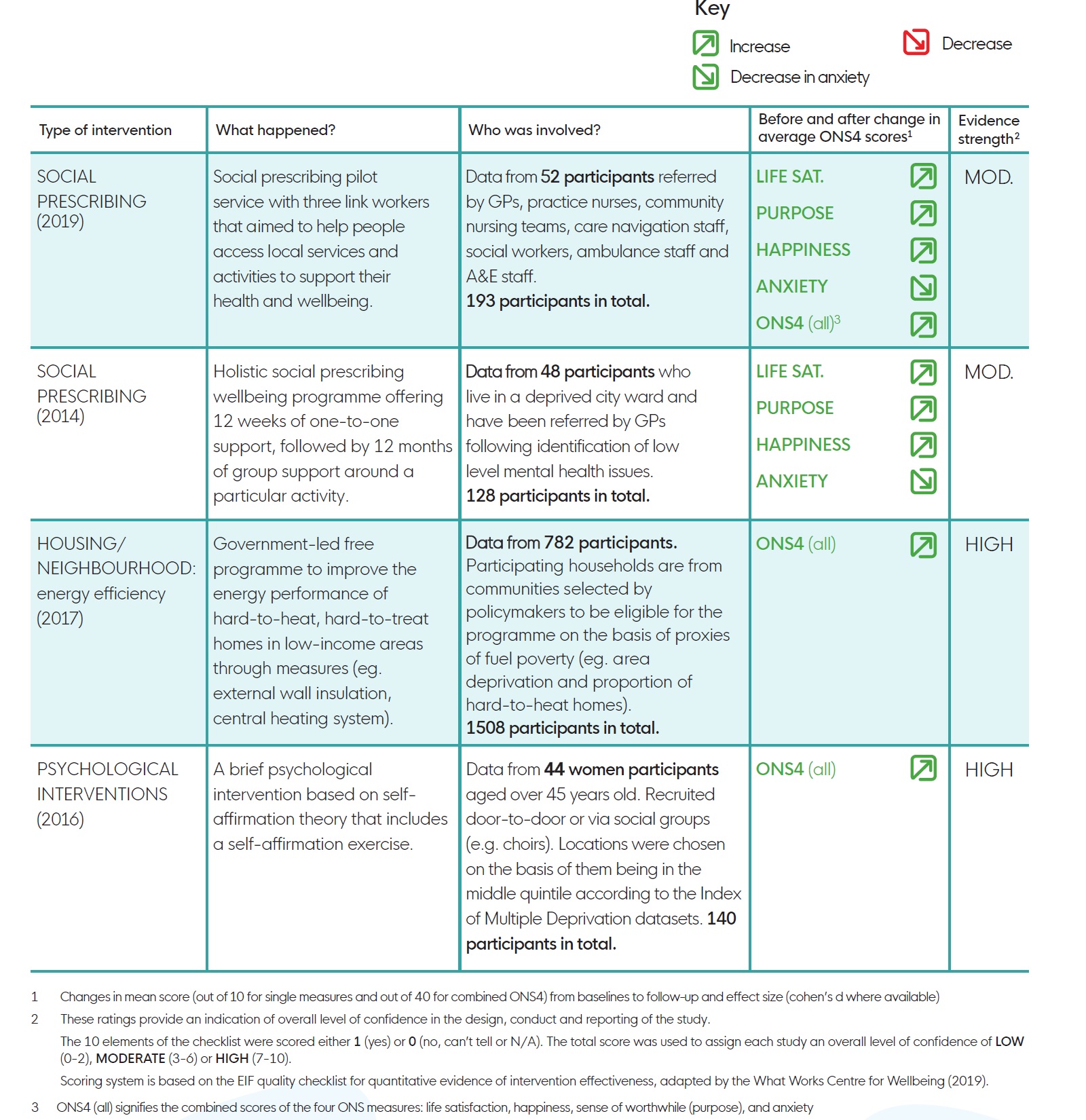ONS4 evaluations: what works to improve personal wellbeing?
Today we publish the findings from a rapid evidence assessment of impact evaluations that use the personal subjective wellbeing measures from the Office for National Statistics. These are known as the ONS4.
This is the first time an evidence review has been carried out for the ONS4. It’s part of our work to provide wellbeing evidence that can inform planning, design, and policy implementation and practice. After a series of conversations across our networks, a key part of this rapid evidence assessment was identifying how and why, and for whom, the projects and programmes worked.
How this review builds the evidence base, and next steps
The findings shared today highlight several promising types of intervention to improve personal wellbeing among adults in the UK. The information we’ve gathered on the aims, population, and quality of each evaluation, builds our understanding of how the ONS4 feature and perform in wellbeing impact evaluations.
As a next step, we will build on this evidence base and look for findings by thematic area and specific wellbeing measures, such as the WEMWBS scales and the Loneliness measure. The focus on measures will ensure wellbeing findings are comparable and can be used to make decisions on how to design or commission activity.
- If you have an evaluation of a wellbeing intervention to share, you can send it to evaluation@whatworkswellbeing.org.
- If you would like to collaborate on further reviews of evaluations that use standardised wellbeing measures, please email us at info@whatworkswellbeing.org.
Key findings
- The ONS4 measures are being used across a wide range of intervention types to evaluate effectiveness. These include:
- housing improvement and neighbourhood design
- community-centred approaches
- skills training
- volunteering
- physical activity
- social prescribing
- psychological interventions
- social care support
- advice and support
- arts and culture.

- More organisations are using the ONS4 to evaluate wellbeing interventions with adults
The first eligible study found was published in 2014 and more than half the studies published were published between 2018 and 2020.
- The most commonly used ONS4 questions were LIFE SATISFACTION and HAPPINESS and almost half the studies used additional non-ONS4 wellbeing measures
Of the 16 studies that used all four ONS questions to assess effectiveness, only two calculated or provided combined scores for the ONS4. The most common additional wellbeing measures were:
- Warwick-Edinburgh Mental Well-being scale (WEMWBS) (8 studies)
- Loneliness (9 studies)
- Quality of Life scales (4)
- ONS Social capital measures (4).
We are currently looking for research and funding partners interested in carrying out a rapid evidence assessment for these wellbeing measures.
Submit your wellbeing impact evaluations
We are always looking for evaluations of wellbeing projects, programmes, and policies carried out by government, academics, funders, civil society, or businesses. This helps to build the broader evidence base on what works. You can share your evaluation with us at evaluation@whatworkswellbeing.org
